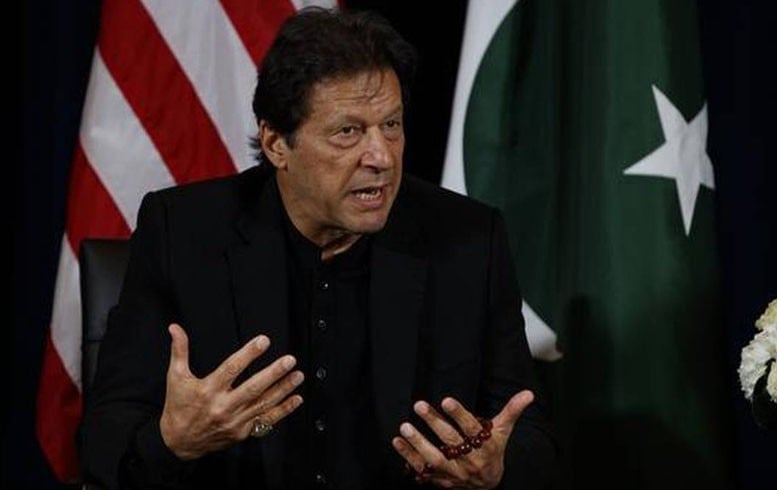
Has Prime Minister Imran Khan’s appeal to the world leaders for show of solidarity on Kashmir at the United Nations fallen flat?

"I came out to New York only because I felt that unless we highlighted what was going on in Kashmir, the world was not going to know," said Prime Minister Imran Khan, while addressing his first press conference on sidelines of United Nations General Assembly.
At this point, the PM had been in New York for almost five days. He had spent most of the time meeting world leaders and private organisations, highlighting the lockdown in Indian Occupied Kashmir (IOK) that has gone on for over 50 days.
A discussion on Kashmir at the United Nations is not as simple as it sounds. It is clearly far more complicated than PM’s expression of his sentiments at the press conference and his stated agenda to bring the international community’s attention to communication shutdown in IOK and to urge the UN to implement its resolutions on Kashmir. The United Nations has been treating Kashmir as a bilateral dispute to be resolved under Simla Agreement. In answering questions on India’s repeal of Article 370, the United Nations has simply asked for both parties "to exercise restraint".
Just a few days before arrival of the Pakistani delegation at the United Nations in New York, Pakistan had failed to get the required votes to pass a resolution on Kashmir at the 42nd session of the United Nations Human Rights Commission in Geneva on September 19. While talking to the media, Foreign Minister Shah Mehmood Qureshi refused to describe it as a setback, claiming 58 votes in support, 16 short of the required count. He said there was support for Kashmir at the session.
PM Khan’s first day in New York was packed with meetings, with representatives of organisations actively working for the Kashmir cause. He met the secretary general of Amnesty International, Kumi Naidoo, Republican Senator Lindsey Graham, and a delegation of people from both parts of Kashmir.
While this was happening in New York, in Houston, the Howdy Modi rally was taking place. The rally was attended by around 50,000 people. It was here that Modi declared US President Donald Trump "my friend, a friend of India, a great American president". This was the third time the two leaders have met this year.
The Indian media presented this event as a huge win for their country. Trump’s appearance at the United Nations Climate Summit, an event he had previously refused to attend, and that too during Modi’s speech appeared to support their claim. It was seen as a testament to India’s power and sway and the lure of a profitable market.
"We must live in the real world," FM Qureshi told a reporter, who ask him about India’s huge economic sway. Not denying the reality, he said, "We need to keep this in mind and while keeping this in mind, we have to raise our voice."
The same thought was expressed by PM Khan during his press conference. He said, "We know why Modi is not being pushed. People look upon India as a market of 1.2 billion people."
Although PM Imran Khan’s meeting with President Trump lacked the pomp and grandeur of the Howdi Modi event, during the meeting Trump did express his resolve to help mediate between the two countries. The meeting took place along the sidelines of the General Assembly, a day before the General Debate was set to open.
As PM Khan met tirelessly with world leaders before the General Debate, his mission was to persuade them to raise the Kashmir issue in their country statements. This did not happen to his satisfaction. Of the 38 countries whose leaders spoke on the very first day, including the US, only Turkey’s leader brought up the issue. "Kashmiris should be able to live freely with their Indian and Pakistani neighbours," said President Recep Tayyip Erdogan.
So, while addressing his first conference, PM Khan said he was "disappointed with the international community".
Ironically, after the press conference, the Indian and Pakistani press engaged in a verbal spat, as if the battle for Kashmir could be won there.
"They [Pakistanis] have been quite aggressive in how they have organised meetings with other heads of states to discuss the issue," Kumi Naidoo told TNS. He added that the international disinterest had more to do with the country’s alliances and politics with India. "It should not be seen as a failure of the Pakistani delegation".